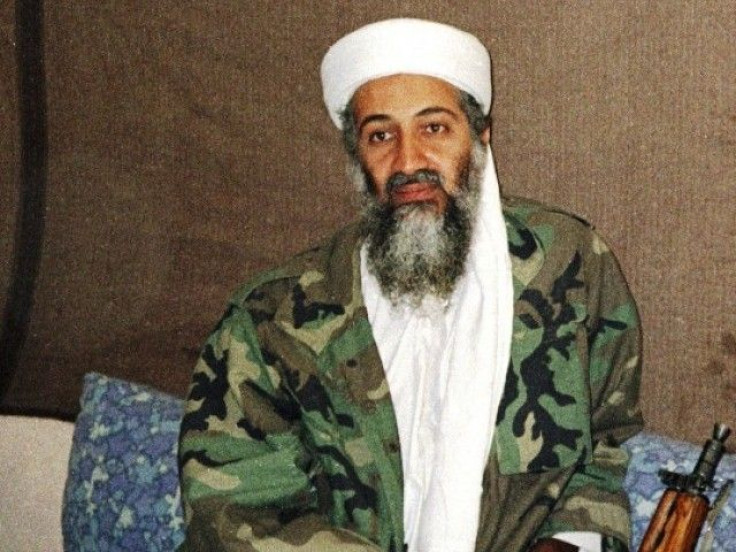Bin Laden Photos Ruling: Will Defense Department Release 52 Osama Death Photos?

A federal appeals court is looking into whether keeping photos of Osama bin Laden's body from the public violates the Freedom of Information Act.
According to Judicial Watch, a conservative legal group, the Freedom of Information Act requires the government to release the pictures or better explain why the release of specific images would damage national security.
Judicial Watch attorney Michael Bekesha, as cited by CNN, said that approximately 52 images of bin Laden taken just after his death or when his body was aboard the USS Carl Vinson and then buried at sea, are public record.
Furthermore, CNN reports that Bekesha argued during the court hearing that the shots of the burial at sea could be released without fear of harming national security. He neglected to comment on the more gruesome images taken just after bin Laden was shot at his compound in Abbottabad, Pakistan.
The government has put off releasing the photos, citing sensitivities concerning the death of bin Laden and saying that releasing the pictures could lead to violence against Americans.
While Bekesha reportedly disagrees with those reports, saying that the government has not said how releasing those images would be harmful, the judges with the U.S. Court of Appeals in Washington took issue with Judicial Watch attorney’s stand. According to the court, government officials have provided information about previous incidents that led to violence in the Arab world or provided terrorists with fuel for propaganda.
Among the examples, as cited by CNN, were the treatment of prisoners at Abu Ghraib prison in Iraq and reports that Americans had desecrated Qurans.
"Why should we not defer to that?" asked Judge Merrick Garland, who was appointed to the court by President Bill Clinton. "We are told there is a risk ... that Americans could die if the pictures are released."
Arguing for the government, Robert Loeb noted that al-Qaida leader Ayman al-Zawahiri made statements that bin Laden's body was not treated in accordance with Muslim traditions in an effort to "inflame tensions."
Previous reports indicated that bin Laden's body was cleaned in accordance with Islamic practices, then wrapped respectfully and buried at sea.
In a statement released before the hearing, obtained by CNN, Judicial Watch President Tom Fitton said that "President Obama is asking the courts to rewrite (the Freedom of Information Act) to allow his administration to withhold documents simply because their disclosure may cause controversy."
"It is not in our national security interest ... to allow these images to become icons to rally opinion against the United States," White House press secretary Jay Carney said at the time.
Judicial Watch, an organization that describes itself as "a conservative, non-partisan American educational foundation that promotes transparency, accountability and integrity in government, politics and the law," has requested that the Defense Department comply with a Freedom of Information request for material on the raid. Included in the request is a photo Bin Laden lying dead on the third floor of his hideout.
Despite their request, a federal judge ruled in April 2012 that there were legitimate national security interests to deny disclosure.
"A picture may be worth a thousand words. And perhaps moving pictures bear an even higher value," Judge James Boasberg said. "Yet, in this case, verbal descriptions of the death and burial of Osama bin Laden will have to suffice."
Judicial Watch says its appeal on Thursday makes clear that the group is not seeking information about equipment or techniques used in the raid.
The government has "failed to provide any evidence that all 52 images, including those depicting bin Laden's burial at sea, pertain to 'foreign activities of the United States,' " the appeal argues, as cited by CNN. "Defendants also have failed to provide any evidence that images depicting the burial at sea actually pertain to 'intelligence activities.'
"Nor have they demonstrated that the release of images of a somber, dignified burial at sea reasonably could be expected to cause identifiable or describable exceptionally grave damage to national security."
© Copyright IBTimes 2024. All rights reserved.












